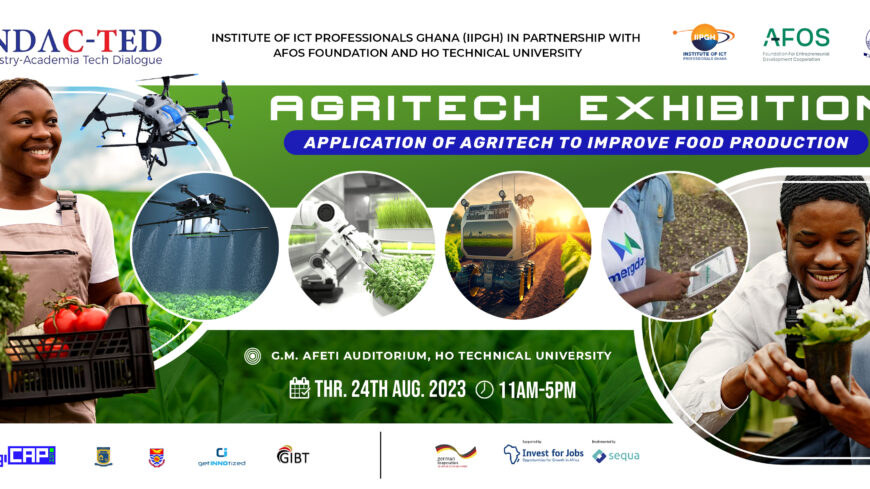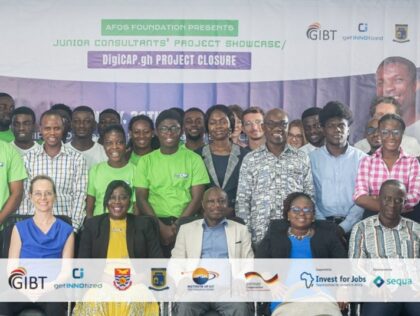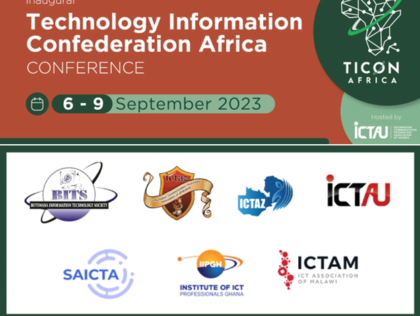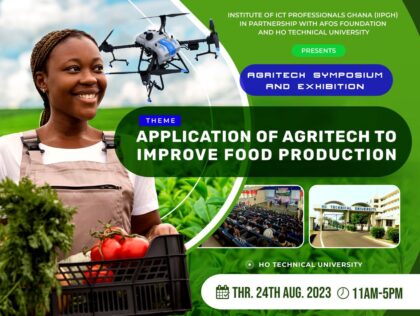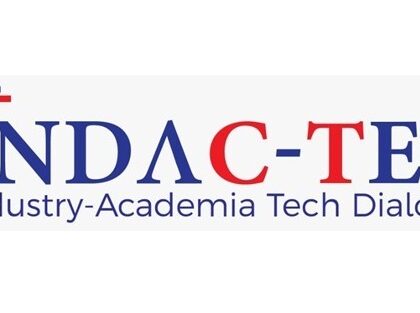…exploring agritech as a driver for increased food production
In a bid to revolutionize the agricultural sector and tap into its immense potential, experts at the 2nd agritech symposium and exhibition held under the 9th quarterly INDAC-TED have emphasized the need to harness the power of agritech to fully transform the sector.
With a focus on the theme: “Application of Agritech to improve food production”, experts from the agricultural and technology sectors gathered to delve into the future of agriculture and explore the potential of agritech as a key driver for increased food production.
With a growing global population and limited arable land, the need for innovative solutions to boost food production has become more pressing than ever. They emphasized that agritech, the application of technology in agriculture, holds immense promise in meeting this challenge.
Presentations
Presenting on the country’s agricultural sector, Vice Chancellor, Ho Technical University, Professor Ben Honyenuga, bemoaned the state at which Ghana is dependent on other countries for most of its agricultural produce. He said the continuous act poses huge threat to Ghana’s food security agenda.
“The last time I watched the news, traders from the onion market were lamenting on the lack of onions to sell and that is because there is turbulence in Niger where they import these onions. We have the human resource because each year we produce many agricultural scientists and without any scientific prove, we have fertile lands and that is why we have to leverage the right technology to improve our agriculture and not depend on other countries,” he said.
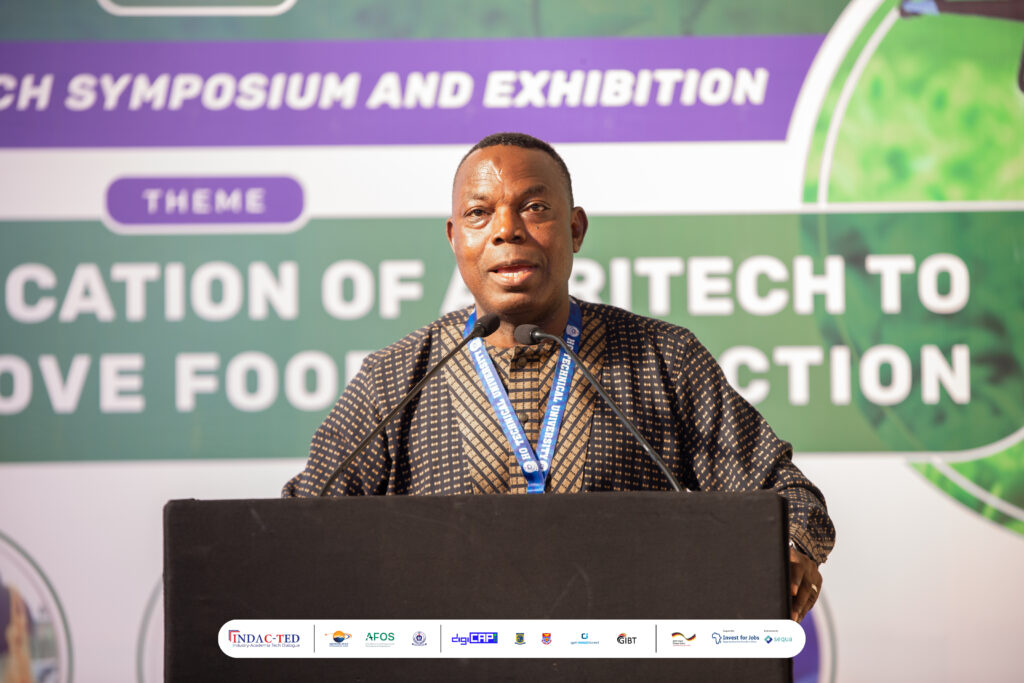
Municipal Chief Executive (MCE) for the Ho Municipal Assembly, Divine Richard Komla Bosson in his remarks emphasized the need for the youth to be involved in the agricultural sector reiterating that leveraging technolog will not only help make a positive impact on the environment but also tap into a market with significant financial potential.
“Agritech solutions approach utilizes data analytics, sensors, and artificial intelligence to optimize agricultural practices and with the required skills as youth entrepreneurs, we can make informed decisions regarding irrigation, fertilization, and pest management. This not only maximizes yields but also minimizes the use of resources, reducing costs and environmental impact,” he said.
On his part, Executive Director for the Institute of ICT Professional Ghana (IIPGH), David Gowu said symposium forms part of the institute’s vision to building a robust technology inclined world.
“Our vision is to become the most reliable partner in transforming Ghana into a technology driven society. And we seek to partner all organizations in achieving these objectives,”.
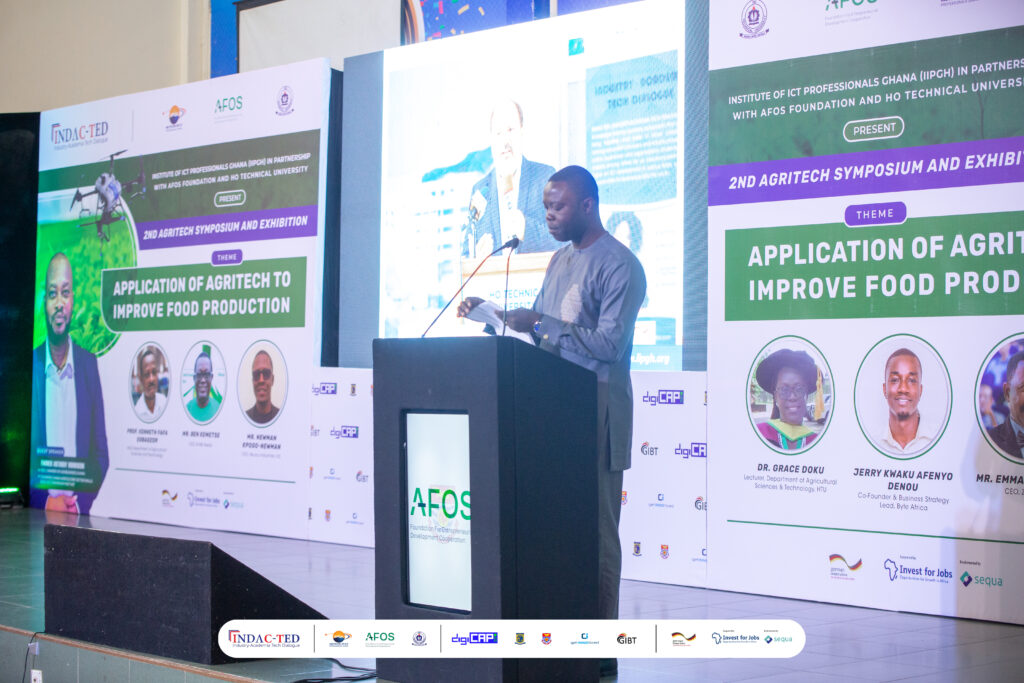
He said the Institute for ICT Professional Ghana (IIPGH), in collaboration with AFOS Foundation and digiCAP, has been at the forefront of promoting dialogue and collaboration between industry and academia.
Project Manager for DigiCAP.gh, Hanna Schlingmann, expressed her excitement towards the forum emphasizing the need to come together to explore the potential ways that the use of technology can be applied to agriculture to benefit human existence.
“I feel that today’s topic is particularly important, why because it effects all of us and I am glad that we have come together to think about and discuss, and share our knowledge on how food production can be improved,” she said.
The partnership between IIPGH and AFOS Foundation is supported by the German Federal Ministry for Economic Cooperation and Development (BMZ) within the framework of the Special Initiative ‘Decent Work for a Just Transition’ via sequa gGmbH.
Harnessing Data and Blockchain Technology
Delivering the keynote remarks, Chief Executive Officer (CEO) for the Chamber of Agribusiness, Anthnony Morrisson highlighted the importance of data in making informed decisions in modern farming practices.
He stressed that leveraging data analytics and advanced technologies could optimize crop management, resource allocation, and supply chain logistics.
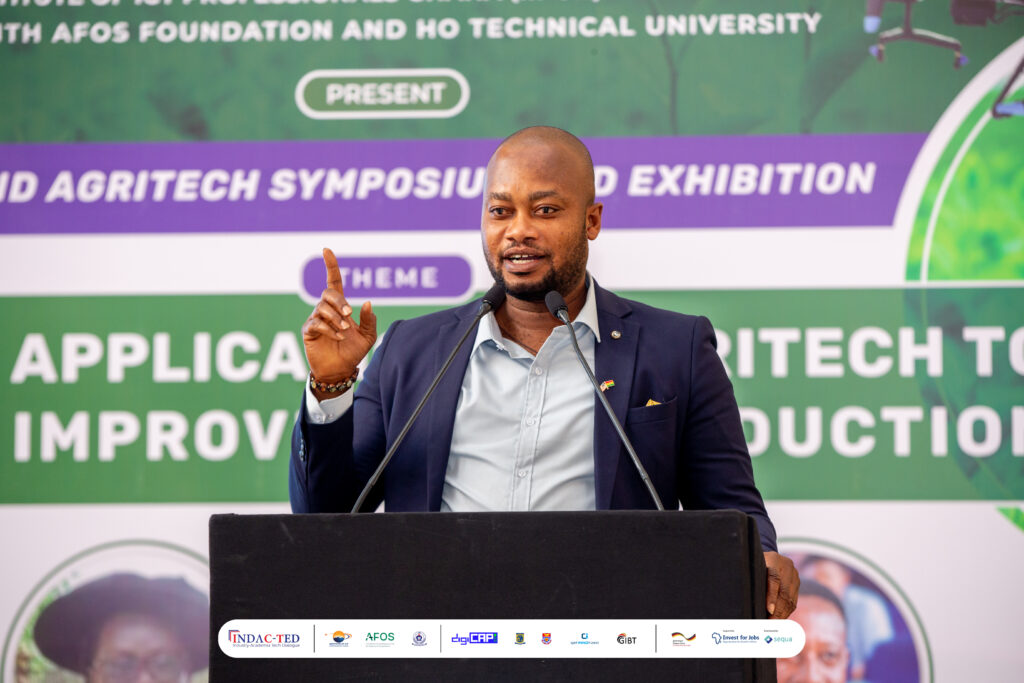
“Data is the backbone of the agricultural revolution we’re witnessing today. It allows us to gain valuable insights and real-time information to improve yields, mitigate risks, and optimize resource utilization,” he said.
“By harnessing the power of data, farmers and agribusinesses can make smarter, data-driven choices to enhance productivity and reduce waste,” he added.
Panel Discussion
In a thought-provoking panel discussion, Co-Founder & Business Strategy Lead for Byte Africa, Jerry Kwaku Afenyo Denou emphasized the integration of robotics and automation as a game-changer. He said: “With the help of robotic systems, tasks such as planting, harvesting, and monitoring crops can be performed efficiently, reducing the need for manual labor and increasing overall productivity”.

Head of Department of Agricultural Sciences and Technology at the Ho Technical University, Professor Ken Fafa Egbadzor shed light on precision agriculture.
He said with advance knowleded, farmers could employ this method to as it an approach that utilizes data analytics, remote sensing, and other advanced technologies to enable farmers to make informed decisions about crop management.
“Now technology has made it easier to monitoring soil conditions, weather patterns, and crop health in real-time, farmers can optimize irrigation, fertilization, and pest control, resulting in higher yields and reduced environmental impact,” he said.
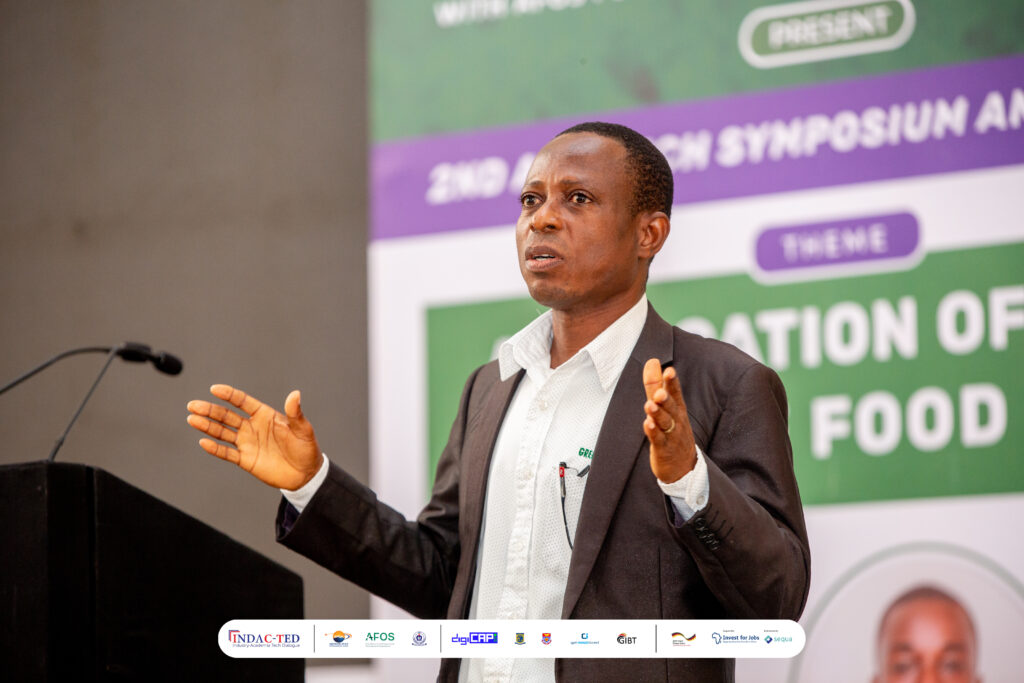
The panelists highlighted the potential for further advancements in this field, with the development of autonomous vehicles and drones that can monitor and manage large-scale farming operations.
At the end of the panel discussion, the forum was open for students and participants to contribute by participating in the question-and-answer session.
Exhibition
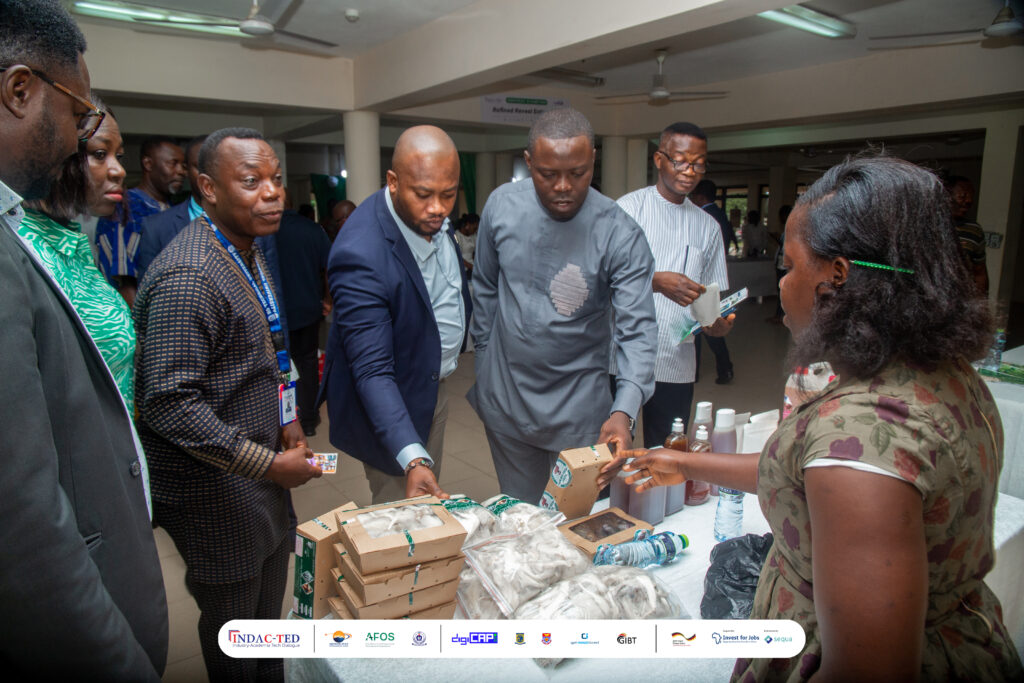
The symposium featured an exhibition that presented participants within the agricultural value chain the opportunity to showcase their array oof products and services.
It also provided a network session for participant and experts within these value chain.
For comments, contact info@iipgh.org

